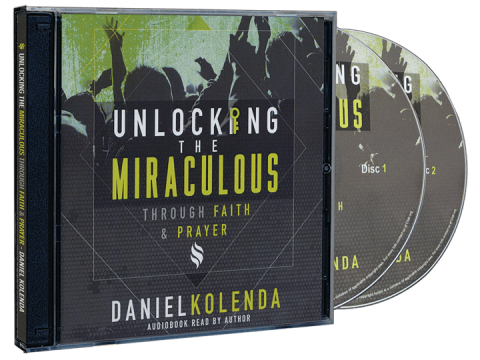Once James had been murdered, Herod’s religious Jewish contingent was thrilled with his initiative and applauded him. Suddenly he saw an easy way to gain favour with a party that had always given him such opposition. Acts 12:3 (AMP) says, “When he [Herod] saw that it was pleasing to the Jews, he proceeded further and arrested Peter also.”
This time things would be very different. The tragedy of James’ death had shaken the believers to the core and all potluck dinners were cancelled – it was time to pray. The Scripture is careful to preface the story of Peter’s deliverance with the following statement: “[fervent] prayer was made without ceasing of the church unto God for him” (Acts 12:5). This statement is very significant, because the writer of Acts is trying to show us that the miraculous deliverance to follow would be a direct result of those fervent and persistent prayers that were offered up by the believers.
It was the last night of Passover week and Peter was chained between two menacing soldiers. This was to be his last night on earth, for in the morning he would be executed as James had been just a few days earlier. But the Bible says that “suddenly” a light from heaven illuminated that gloomy prison house as an angel of the Lord appeared in his cell. He smacked Peter on the side and said, “Get up quickly!” An interesting fact is found in Acts 12:7. It tells us that Peter’s chains, “fell off from his hands”! Notice that it does not say that the angel broke the chains off Peter’s hands, but simply that they fell off.
The angel said to Peter, “Put your clothes on and follow me.” They walked past the first set of guards who didn’t notice him. They walked past the second set of guards who also seemed oblivious to his escape. Then they approached the most obstructive barrier of all – a huge iron gate that separated the prison from the street. This gate was designed to protect the outside world from the dangerous criminals it confined. It was an obstacle that seemed totally insurmountable, but Peter was not worried – he thought it was just a dream anyway.
You will notice that verse 10 says that when they reached the gate, it “opened to them of his own accord: and they went out, and passed on through one street.” Only then did the angel vanish, and suddenly Peter realised that it was not a vision. He had actually been delivered!
Can you see the theme that is emerging here? In the story, every obstacle, every barrier, and every obstruction is completely impotent. The chains fell from Peter’s hands, the guards could not see him escaping, and finally the iron door opened, and the most amazing part is that all of this seems to have happened almost by itself. Although a mighty angel is sent to escort Peter out of the prison, the angel does not touch the chains, the guards, or the doors – they seem to be impacted by an invisible hand.
We see very clearly from what is emphasised in verse 5 that it is because of the prayers of the saints that all this is happening. “[Fervent] prayer was made without ceasing of the church unto God for him.” The prayers of the believers were the power that loosed the chains, removed the obstructions, and opened even the most impenetrable doors.
It was Peter to whom Jesus said, “And I will give unto thee the keys of the kingdom of heaven: and whatsoever thou shalt bind on earth shall be bound in heaven: and whatsoever thou shalt loose on earth shall be loosed in heaven” (Matthew 16:19).
Oh, my friends, if we had any idea of the incredible power that is available to us through prayer, I think we would find it so easy to heed Paul’s prompting to “pray without ceasing” (1 Thessalonians 5:17).
We hope you enjoyed this Bible Study by Daniel Kolenda. Be on the lookout for the next teaching INTERCESSION BELONGS TO MAN in one week.

